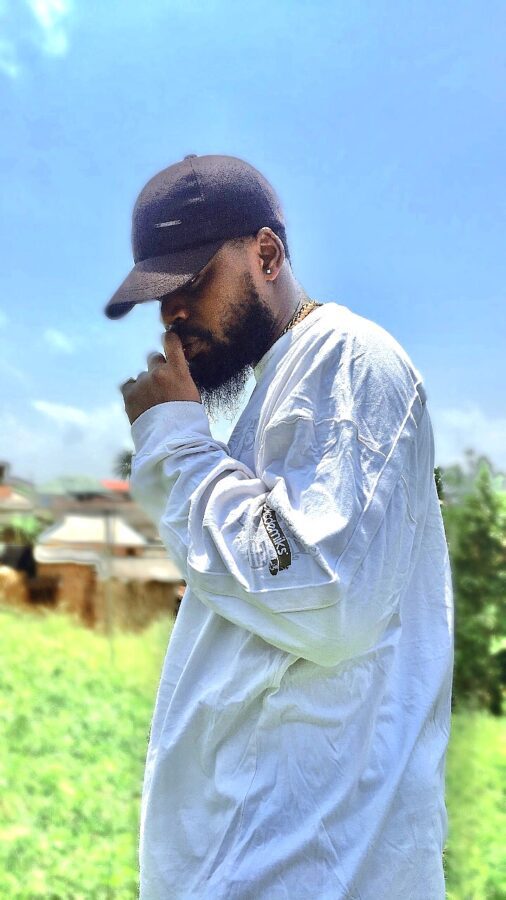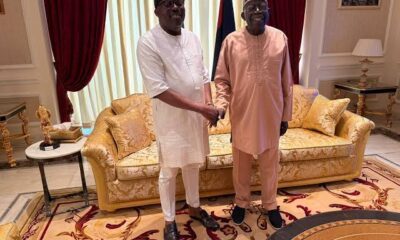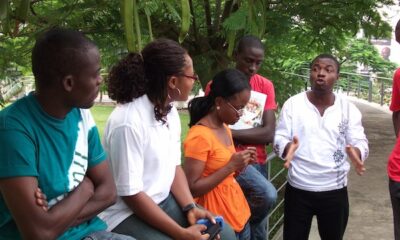Forgotten Dairies
Grief: What It Is And How To Deal -By Ogala Osoka
Sometimes when we are asked who we are, we mention our religion, our tribes, our occupation, our social ranks, all these things are objects we identify with, and losing them will cause us great turmoil. They help us make meaning of our world and enhance our relationship with it. When we lose it, our balance with the world is shaken. We don’t know where or what we are.

We feel grief when we lose something; not just something close to us, but something we identify as ourselves. Imagine losing your mobile phone, for instance. We are mostly attached to our phones because it is functional in our daily lives. It becomes handy when we want to reach out to people and it, many times, represents a symbol of our relationships and connections to others.
For many of us, we can say we love our phones, only because we cannot imagine our lives without Instagram and Twitter. However, once once our phones stop being functional, they find themselves in the trash. It is safe to say we form an identity with our phones, so that when we cannot access them – when our phones become unavailable as communication devices – we will plunge into grief.
Grief, then, comes to the surface when something that informs our identity is MIA. To be frank, we don’t grieve because we love the object. We grieve because we love ourselves so much that we cannot live without the function of the object we have lost. This is why grief is a painful process – because losing that object also means losing ourselves.
The way identity and consciousness works is complex yet simple. When we are born, we have no identity. As we grow, we begin to identify ourselves with our external world. First, you become your body. Then you attach your identity of the people around you – your family. Then your identity ropes around abstract beliefs and ideas that you pick up along the way, e.g religion. Layer after layer, these things form your identity. When somebody asks you who you are, first you tell them your name. However, objectively, your name is only a concept your parents attached you to. A girl’s name who is Amaka (meaning beauty) identifies with beauty, and losing that name might mean losing an identity.
Sometimes when we are asked who we are, we mention our religion, our tribes, our occupation, our social ranks, all these things are objects we identify with, and losing them will cause us great turmoil. They help us make meaning of our world and enhance our relationship with it. When we lose it, our balance with the world is shaken. We don’t know where or what we are.
This is the same with our relationships with people. When we involve ourselves with another person, what really happens is that we build our identity around their functionality, and so they inform who we are.
“Who are you?”
“I am Chinedu’s wife.”
Being in a relationship with another person – the bond shared – is an identity on its own. If we loose the involvement, it shakes us to the core, and we struggle to know who we are.
“If I’m not Chinedu’s wife anymore, then who am I?”
It hurts not to know who we are.
Some people deal with this by choosing not to identify with anything. For instance, many of the people who claim to be atheist today have rejected religious institutions in one way or another, either when presumed lies were discovered or through subjective interference. Atheism then provides a way not to have to deal with these religious’ chaotic identity. In a way, atheism is an escape to some.
It is the same with people who have the fear of committing to people. Relationships, whether with people or with abstract ideas and beliefs, involve a reshaping of our identities . When a person has a fear of committing, what they really express is a fear of identifying with another person. What they usually do not understand is no one can escape identifying with other things. As we relate with things, we select the peculiar ones that resonate with us and identify with them. It is how identity works. You can fight it but it wins eventually, because even the lack of identity hurts. The lack of identity in itself is an identity, and many times, this is grief. – you don’t know who or what you are anymore.
Many people get heart broken or disappointed and then develop fear of committing. Who can blame them? Grief is painful and they don’t want to ever experience it again. However let’s analyze the situation. You lose a person you identify with, and so you grieve. That’s normal. But then you go on to identify with that grief (no longer the person you lose). Therefore, you are no longer Chinedu’s wife. You are now a sad person. Logically, your sadness is as a result of Chinedu’s absence. However, it does not matter. You are now just a sad person. This is your identity, and you cling on to this identity because you are afraid of getting hurt. It is like clinging on to hurt because you are afraid of getting hurt. It is not surprising that a lot of people who avoid committing repeat the hurt that inspired their non-committal identity.
Understanding this, it becomes clear how to deal with grief – identify with some thing else. If you lose your phone today, the best way to deal with the grief is to get another phone, right?
Yet, this method easily backfires with people more than it does with objects. Identifying with people is a slow, educative process. There are reasons why we find the peculiar people that are in our lives and identify with them. There are also reasons why we lose these relationships we have built. Consequently, understanding the Why’s is crucial to dealing with grief.
Since grief is all about losing identity, then dealing with it would draw more efficiency if we wrap our identity around a core constant. Everything changes and so our identities with objects will always change. These changes are unpredictable and many times, chaotic. To deal with the grief that emanates from such environment, we have to invest our identity, first, in an object that is susceptible to our own control, a sort of identity to self.
We may not be able to control the things around us, and basing our identity on them without a backup plan is insanely mentally degrading. We can regulate the changes that happens within, and so it is easy to trust ourselves, at least more than it is to trust others. Hence first learning to identify with ourselves creates a foundation for identifying with others. It is true that you are Chinedu’s wife, but if you know who you are before you were Chinedu’s wife, you might be able to retain that identity after Chinedu is gone.
- Dealing with grief is not the avoidance of identifying with others, but a regulation of the what’s and The Who’s we identify with. When we realize this, we become careful and cautious about the things we wrap our identity around. When we eventually find that idea, object or person worth it, we identify with it fully, experiencing it wholesomely. And when it is time to let this identity go, we would happily release it because we know who we were before it came and so, we would always know who we are long after it is gone.










